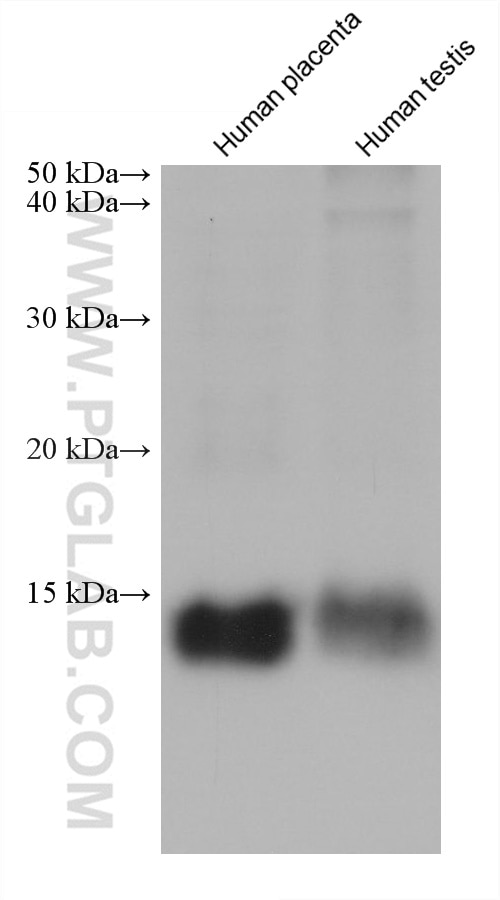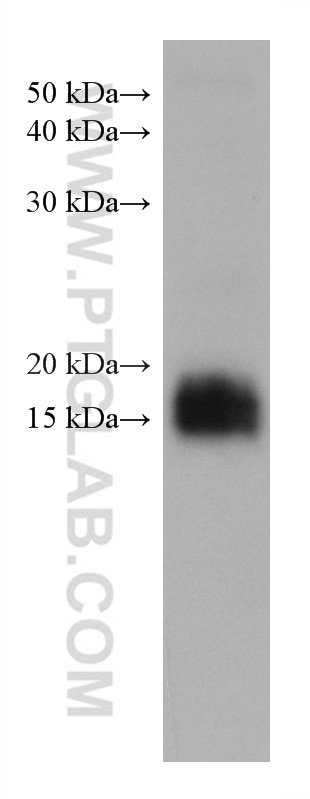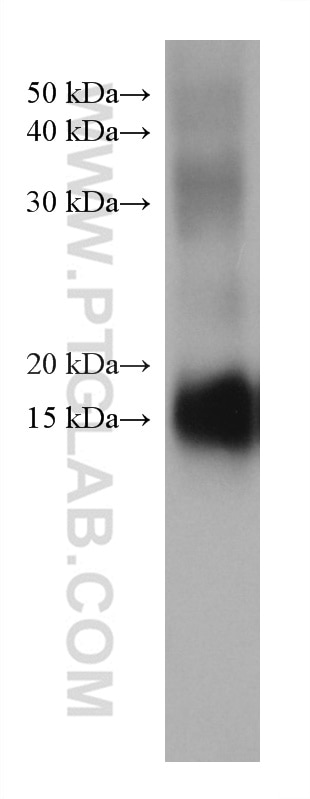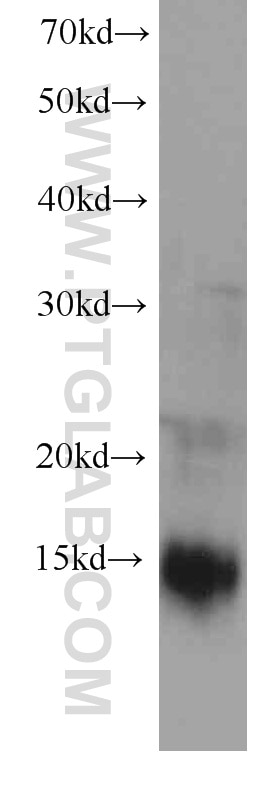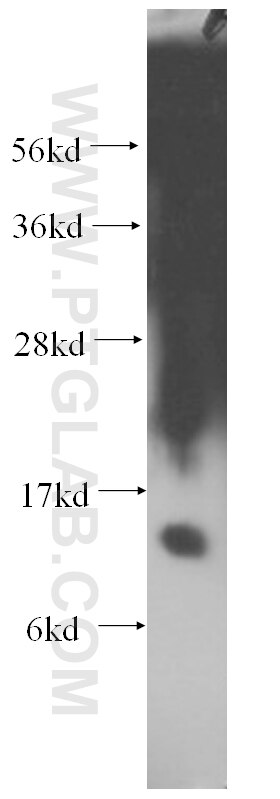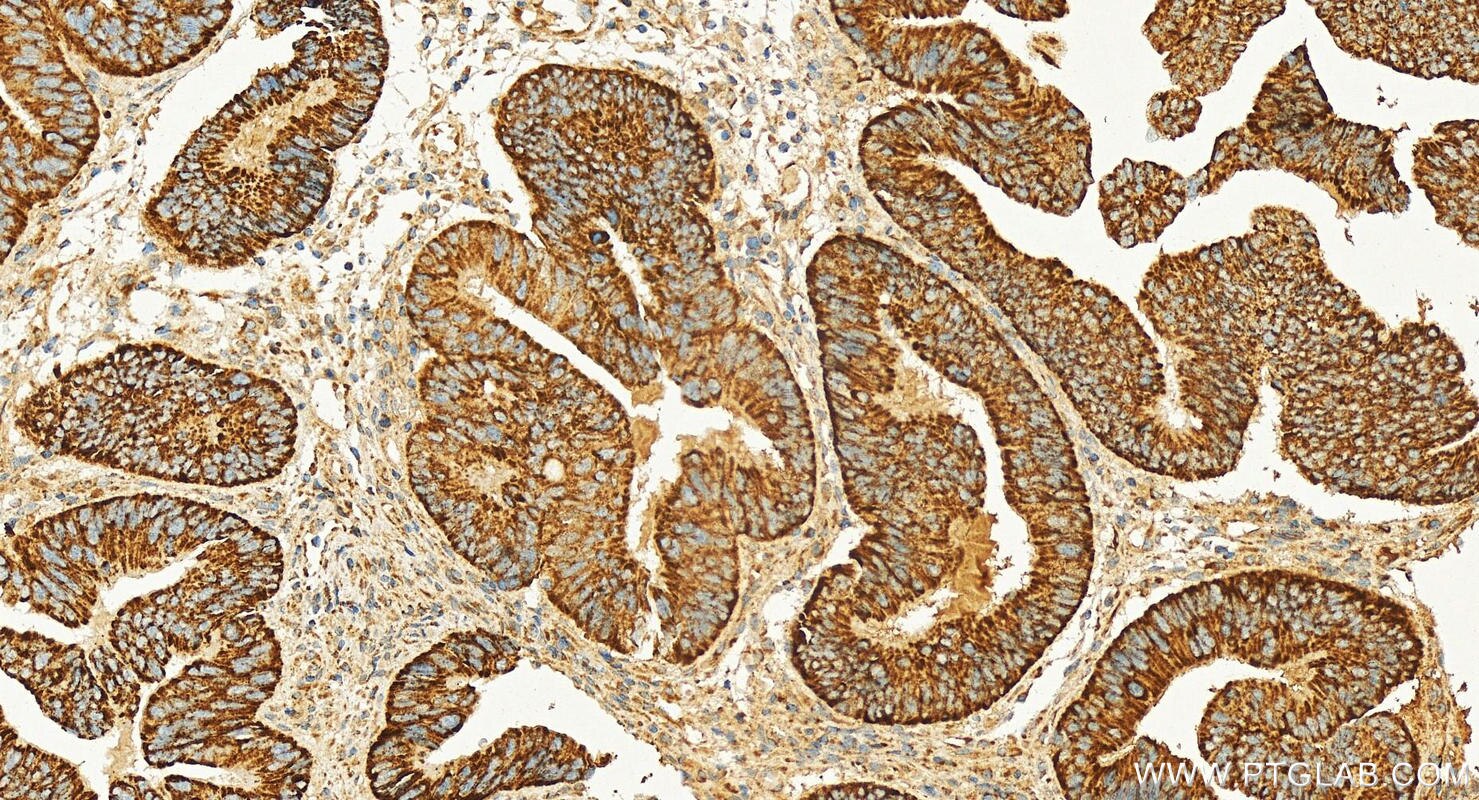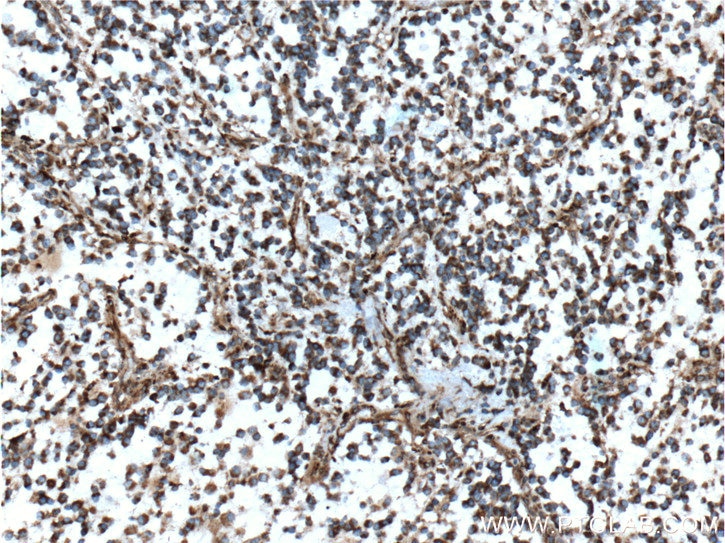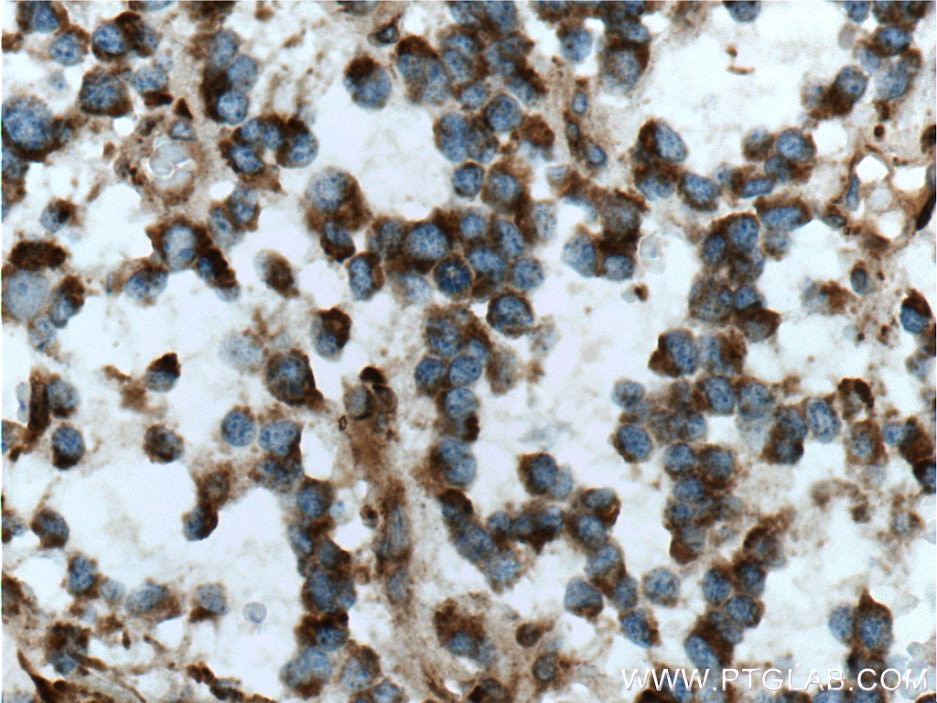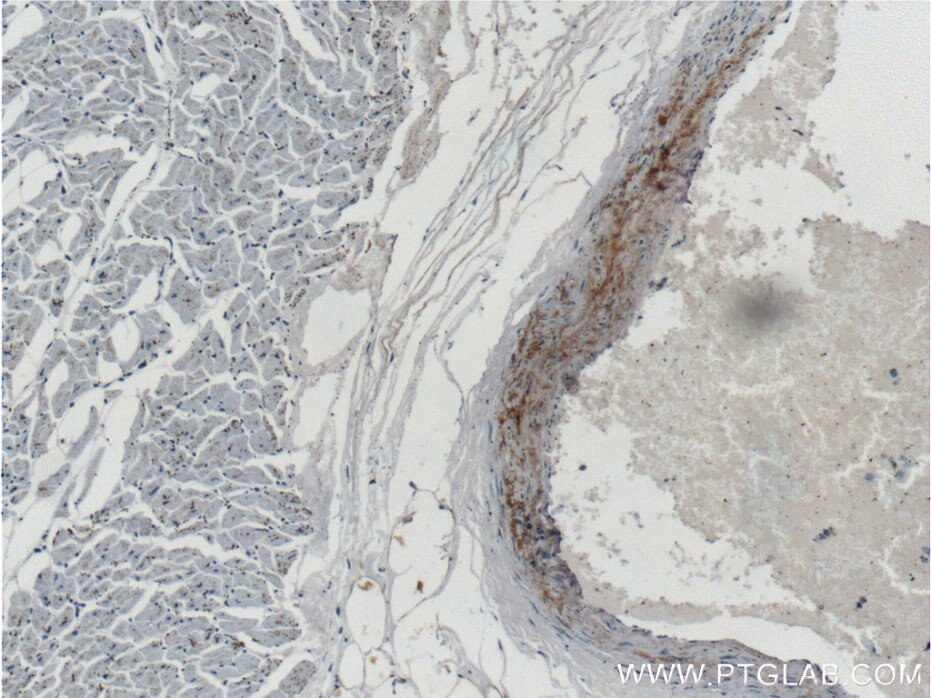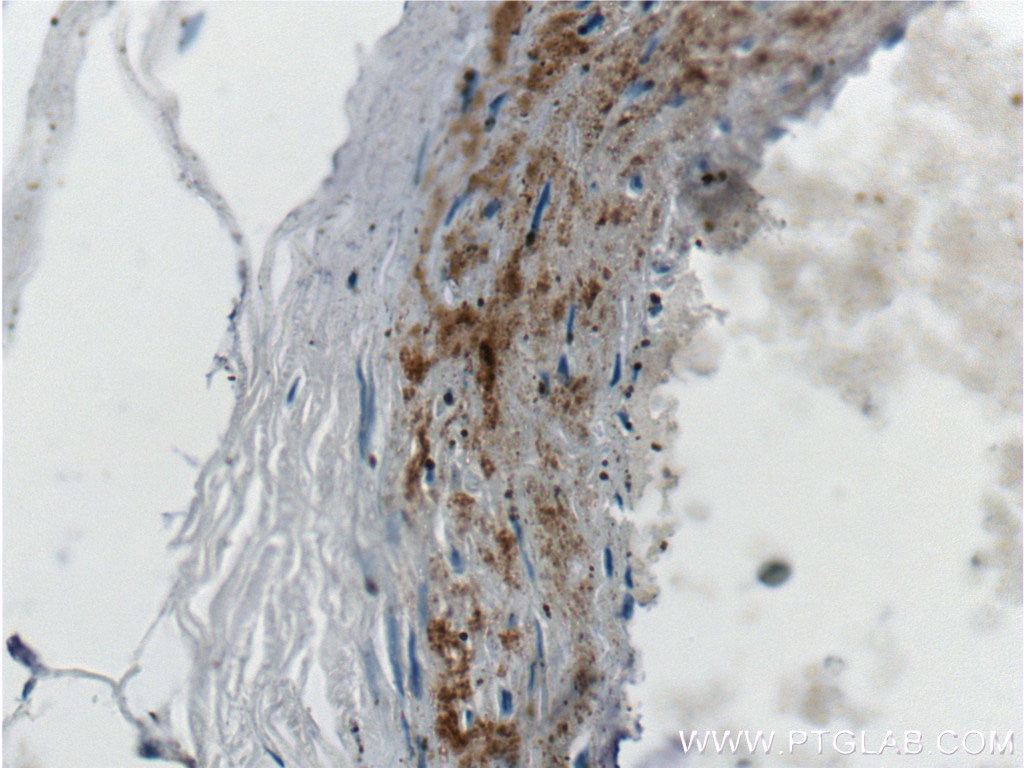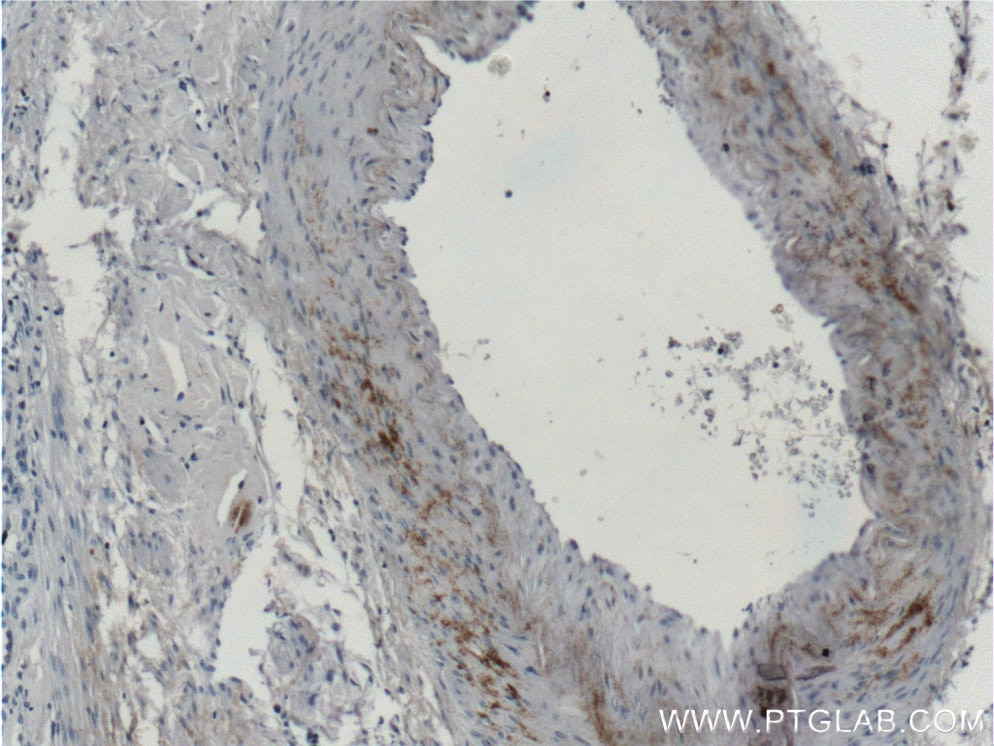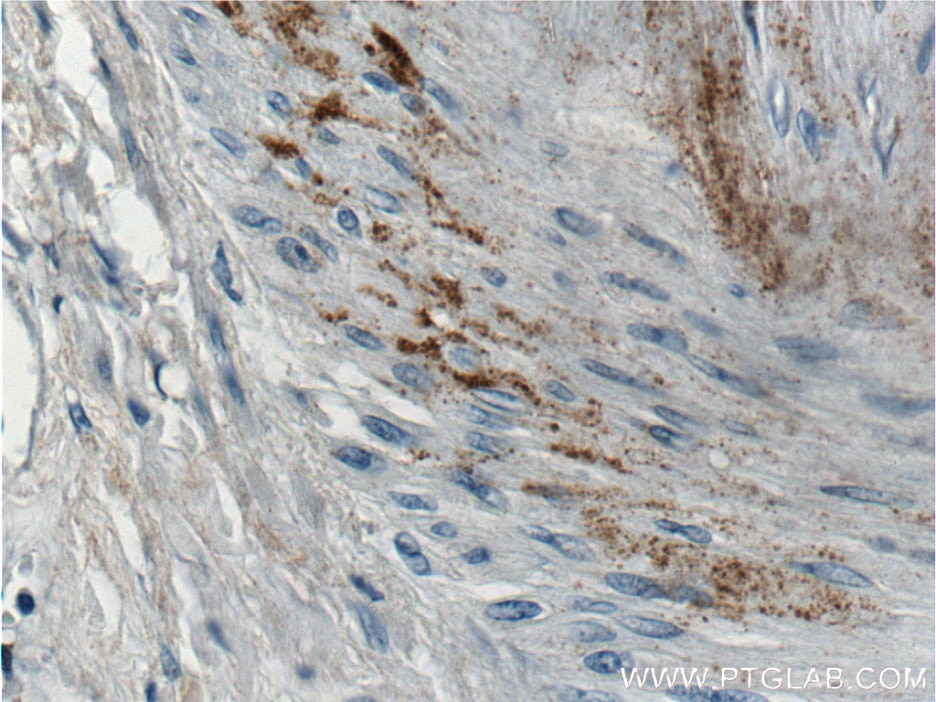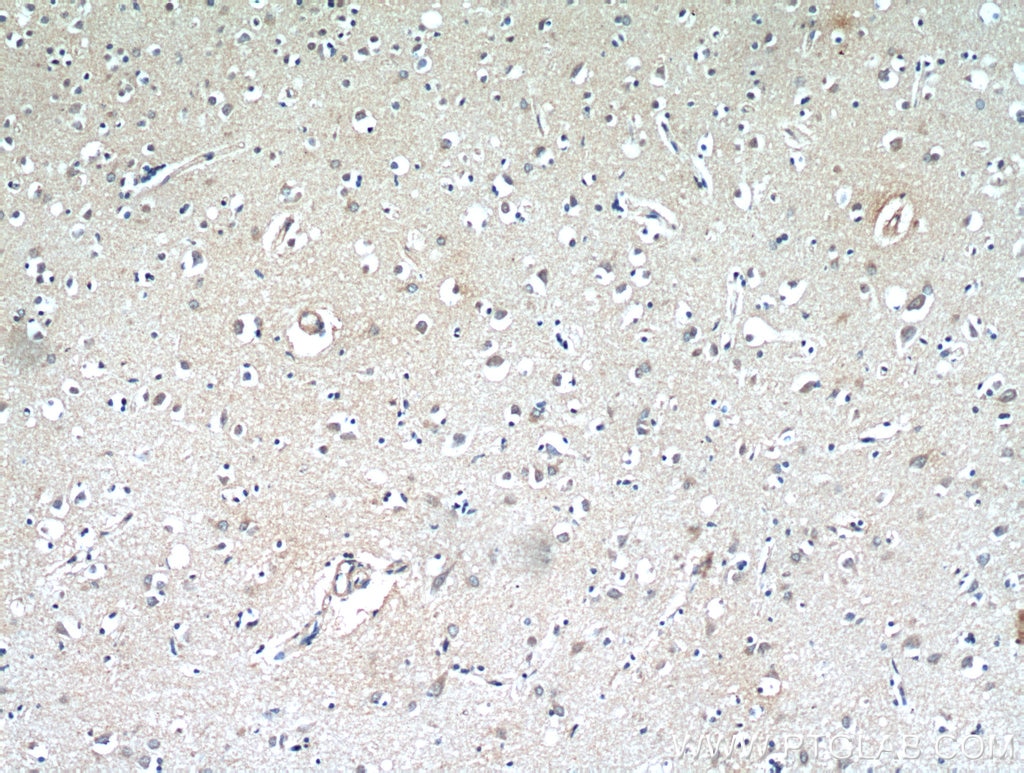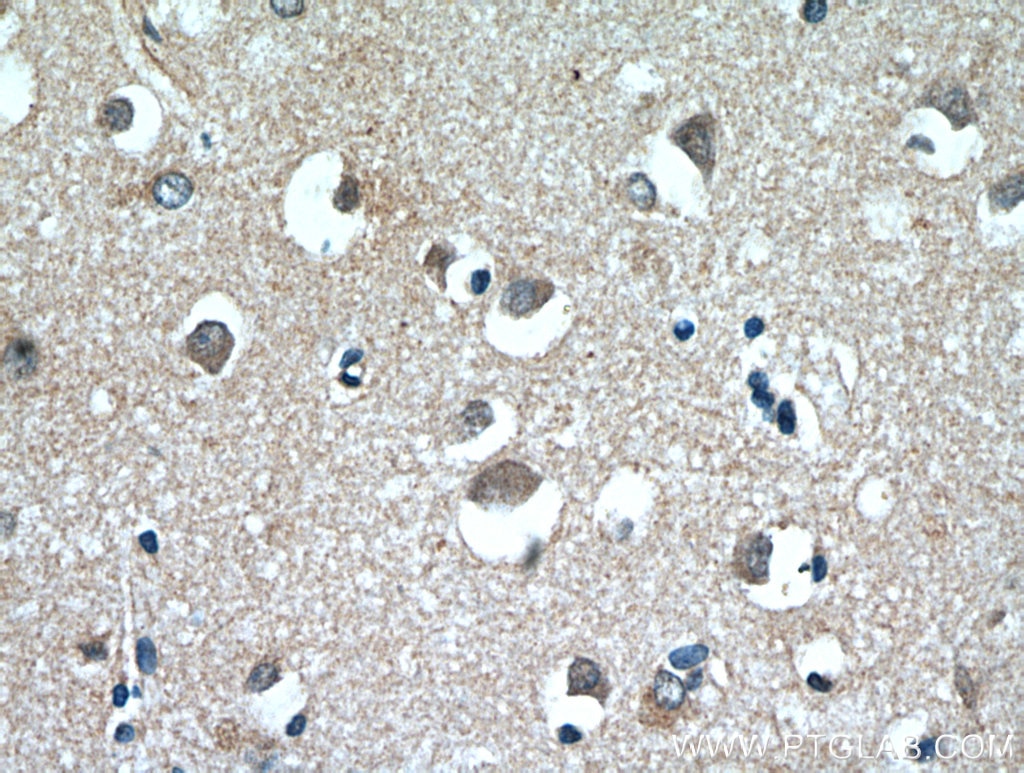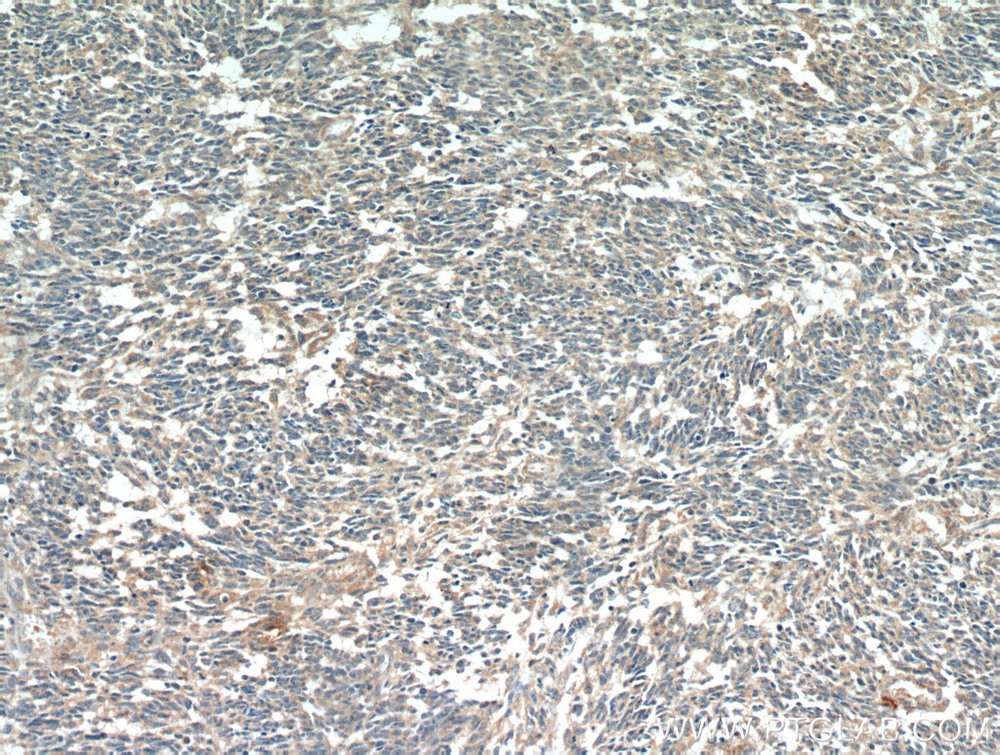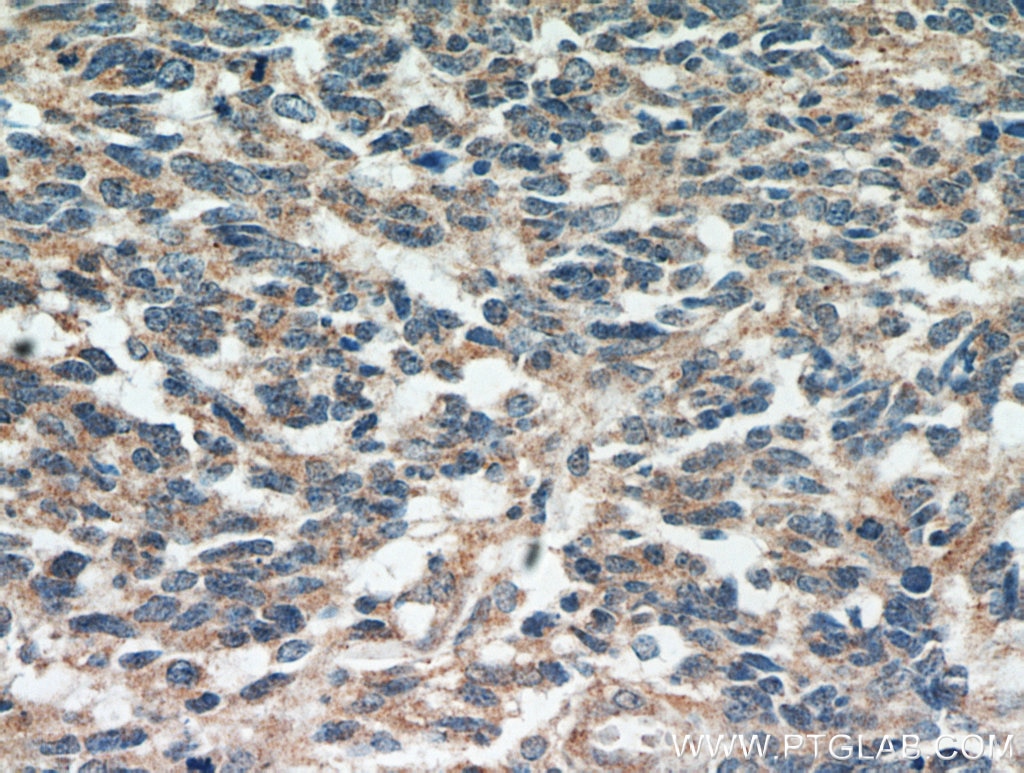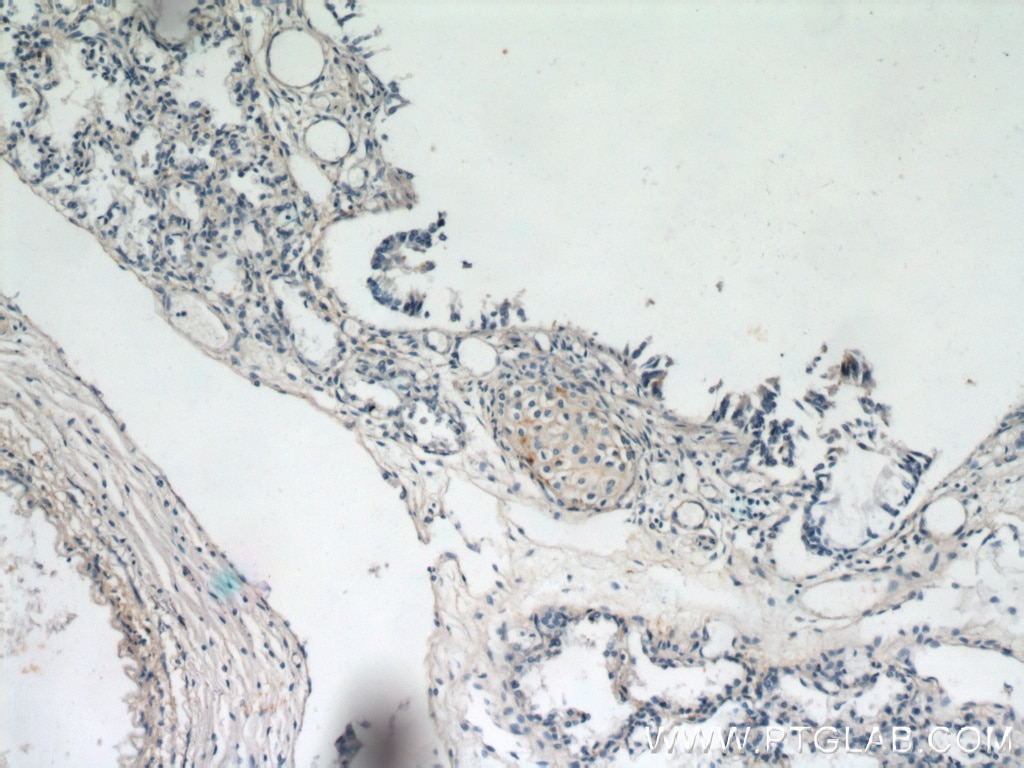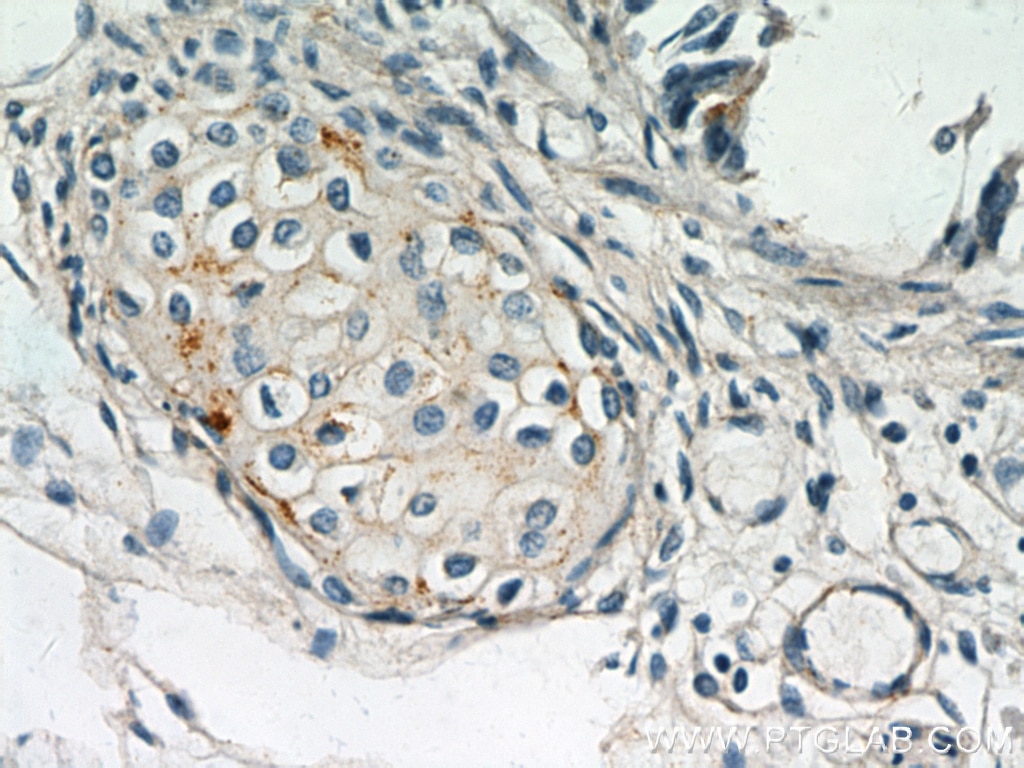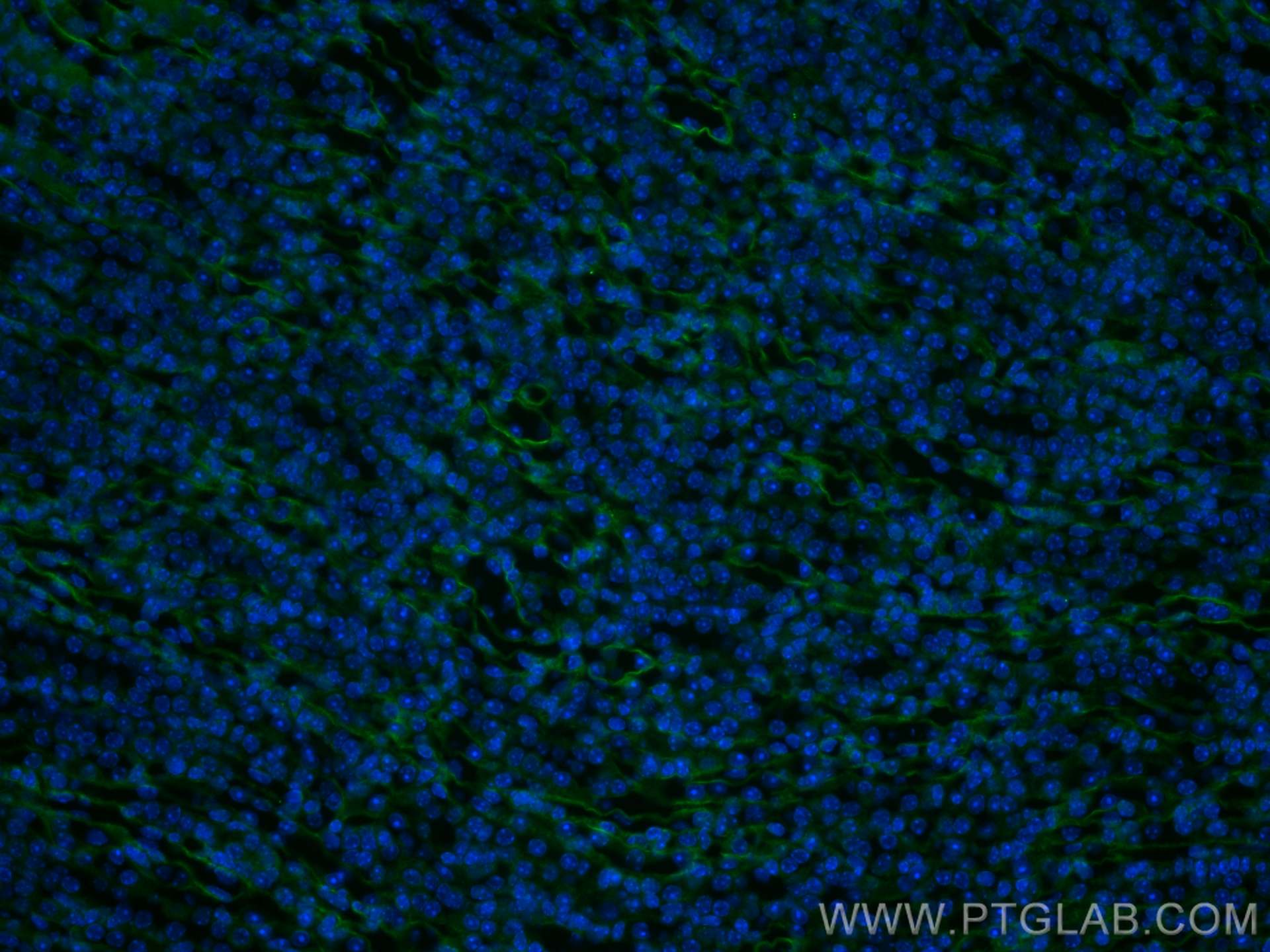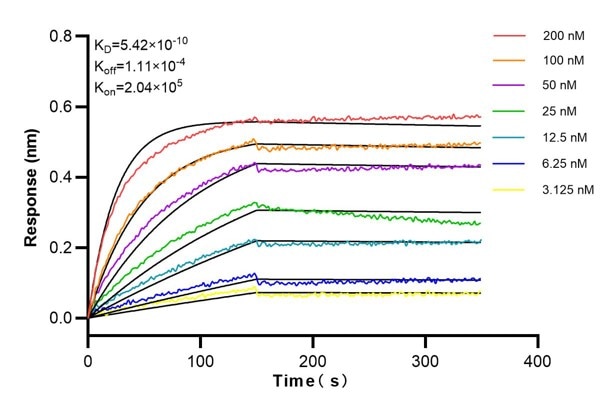- Phare
- Validé par KD/KO
Anticorps Monoclonal anti-MGP
MGP Monoclonal Antibody for WB, IHC, IF-P, Indirect ELISA
Hôte / Isotype
Mouse / IgG2a
Réactivité testée
Humain, souris
Applications
WB, IHC, IF-P, Indirect ELISA
Conjugaison
Non conjugué
CloneNo.
1A1C3
N° de cat : 60055-1-PBS
Synonymes
Galerie de données de validation
Informations sur le produit
60055-1-PBS cible MGP dans les applications de WB, IHC, IF-P, Indirect ELISA et montre une réactivité avec des échantillons Humain, souris
| Réactivité | Humain, souris |
| Hôte / Isotype | Mouse / IgG2a |
| Clonalité | Monoclonal |
| Type | Anticorps |
| Immunogène | MGP Protéine recombinante Ag1091 |
| Nom complet | matrix Gla protein |
| Masse moléculaire calculée | 103 aa, 13 kDa |
| Poids moléculaire observé | 12 kDa |
| Numéro d’acquisition GenBank | BC005272 |
| Symbole du gène | MGP |
| Identification du gène (NCBI) | 4256 |
| Conjugaison | Non conjugué |
| Forme | Liquide |
| Méthode de purification | Purification par protéine A |
| Tampon de stockage | PBS only |
| Conditions de stockage | Store at -80°C. 20ul contiennent 0,1% de BSA. |
Informations générales
Matrix Gla protein (MGP) is is a vitamin K-dependent, extracellular matrix protein. MGP plays a pivotal role in preventing soft tissue calcification and local mineralization of the vascular wall. Vitamin K deficiency leads to inactive uncarboxylated MGP (ucMGP), which accumulates at sites of arterial calcification. However MGP is synthesized in many tissues and is especially enriched in embryonic tissues and in cancer cells. Defects in MGP are the cause of Keutel syndrome (KS), which is an autosomal recessive disorder characterized by abnormal cartilage calcification, peripheral pulmonary stenosis neural hearing loss and midfacial hypoplasia.
